Fuel retailers may be losing share in the car wash market to standalone operators, but it’s not all doom and gloom for forecourts. There is some light at the end of the tunnel in the form of new legislation – and it’s not often that legislation comes in forecourts’ favour.
Growing concerns about detergents, oil and surface dirt entering the sewage system and contaminating rivers and waterways has spurred some European governments to introduce legislation to reduce the environmental damage caused by car washing on the street. It’s only a matter of time before Britain follows suit, and if Germany is anything to go by, a strict ban on car washing at home could see UK car wash machine usage leap in giant proportions.
In 2002, cars in Germany were washed at a car wash an average of eight times. The European average is 5.4 times, but in the UK, it’s only 3.4 times. According to Datamonitor, which published its report ‘Opportunities in car washes for European fuel retailers’ earlier this year, asserts that forthcoming legislation is set to be the biggest driver for the European car wash market in the next five years.
“Oil companies and retailers need to fight back and take advantage of the new opportunities presented by changing legislation to regain their position in the market,” says the report’s author, energy analyst Konni Sanderson.
Oil companies and indie retailers have neglected their car wash offer in favour of investment in the forecourt shop, says Sanderson. She also adds that investment has generally gone towards replacing machines rather than expanding car wash business.
This lack of investment has left an opening for standalone operators. Datamonitor claims that while service stations still account for 57 per cent of car washing in Europe, unless fuel retailers invest, they will see their share of the market decline further.
The standalone segment of the market has also benefited from a growing demand for commercial car washing at a time when service stations have cut their investment due to poor retail profits in recent years.
New car wash centres continue to emerge and standalone operators, who often have better marketing and superior equipment, are securing their grip on the market by offering a variety of wash types as well as better service.
The report is raising concern among car wash suppliers, but some companies believe that losing share to standalone operators was inevitable. “I said at the time of its publication that the Datamonitor report was very broad brush in its comments,” says Simon Walker, after-sales manager at Wachtec UK.
“But there is no doubt in my mind that if your sole source of income is vehicle washing, that fact alone will certainly concentrate the mind of the operator to focus and focus continually on how to maximise throughput and customer loyalty.
“Many forecourt operators today have invested heavily in turning their shop space into mini supermarkets. We in the car wash industry have watched in awe as this transformation has occurred, jealous of the time and financial resource given over to this sector of forecourt profitability.
“The Datamonitor report merely highlights this change in the forecourt operators’ chosen modus operandi, and now that the petrol forecourt has become the corner shop of tomorrow, maybe now it is time to focus on how best to increase awareness of the valeting offer.”
CHANGING PREFERENCES
Lack of investment is compounded in the fact that motorists’ car wash preferences are shifting away from the traditional rollover wash towards both jet washing and conveyor washing, claims the Datamonitor report.
Those that are realising this and bucking the trend by investing in new technology are reaping the rewards. Take Kitchens in Burnley, for example. Two years ago, owner Steven Blackadder invested £165,000 in a Christ conveyor car wash with reverse osmosis plant (a method for removing minerals from water so that it is pure) from Yorkshire-based AG Electronics. The investment is clearly paying off with the site taking £7,000 in car wash sales some weeks.
Independent forecourt group Octo also has some impressive sales figures through investment in up-and-coming car washes. The retailer has increased its car wash business by two thirds following the installation of a 18.75m Vista conveyor wash with a mixture of filament and FoamBrite brushes – which are said to have a polishing effect on the vehicle – just over a year ago. The system also includes Ryko’s Hydrobot high-pressure pre-wash system, which removes the need for excessive hand pre-wash.
The retailer operates six sites – one in Wiltshire, two in Sussex, one in Lancashire, Cheshire and Scotland – but the site in Wootton Bassett has seen car wash business increase from £75,000 a year to £125,000.
Director Scott Waller explains why the group plumped for a conveyor wash: “We had good jet wash and rollover car wash sales but we wanted to minimise queues for the car wash to make room for parking spaces. The conveyor can wash 50 to 60 cars an hour, compared to about 12 an hour with the rollover.
“The customers are very happy and we’ve had a lot of repeat business. There’s not another conveyor in the area so we’ve got the market sewn up.”
The only downside, says Scott, is that a conveyor costs a lot to maintain. “It needs to be staffed at all times and costs about £10,000 per year in maintenance, compared to £3-4,000 with a rollover,” he says. “But the machine more than makes up for it through extra capacity.”
Although, according to Datamonitor, while motorists are favouring the conyeyor wash, land restraints are preventing the growth of these systems in forecourts. But, as forecourt closures continue, the land left behind is ideal for standalone car wash operations.
Peter Spencer, managing director of Atlantis, says: “It is kind of ironic that standalone car wash operators are taking some of the valuable wash market from the fuel retailers because they tend to spring up on closed fuel retail sites, which have been shut down because of the supermarkets.
“As regards conveyor washes, the public use them because they get special attention on areas of the vehicle which a rollover wash won’t reach, and wash quality is usually quite good due to the length of time the vehicle is being washed.”
SOFT OPTION
About 85 per cent of motorists do not use rollowever car washes and the most common reason for this is a fear of scratching. Car wash suppliers are encouraging operators to address this problem by upgrading their car washes to use soft brushes.
“Only 15 per cent of car owners use a car wash so motorists must be concerned with something,” says Wilcomatic’s national sales manager Adam Clark. “We are interested in the other 85 per cent, and this is where different brush types come into their own.”
Motorist perception is that automatic car washes cause hairline scratches, but, says Clark, it’s actually a nylon deposit from the brush. The friction of the brushes causes the nylon to heat up and melt onto the vehicle. This is known as paint disturbance, and marks can only be taken off at a workshop with a
buffing gun.
“Changing the brush type from nylon, which is the standard, to textile causes zero paint disturbance and, in fact, polishes the car,” says Clark. Wilcomatic, which distributes the Christ brand of car washes, offers two types of soft brush as an upgrade option – Sensofil foam or Sensotex textile brushes. Clark claims that 95 per cent of forecourt retailers choose a car wash with one of these options.
Sensotex, which costs an extra £5,500, is only suitable for car washes with a high pressure pre-wash. Sensofil requires a smaller investment of £4,000 but is noisy. “Some customers can get scared in a car wash with Sensofil brushes,” says Clark.
Wilcomatic has installed the Christ C150 with Sensotex textile brushes at Shell-branded Bordon Service Station in Bordon, Hampshire, and the Christ C115 with Sensofil foam brushes at Jet-branded Woolmer Service Station, also in Hampshire.
When the machine at Bordon was installed, owner Mike Garner launched a number of marketing activities to kick-start sales. Along with point of sale material and promotions such as buy one get one free, Mike also encouraged his sales assistants to promote the new soft brushes direct
to customers.
“Staff training is very important,” he says. “It’s vital for staff to be educated in the benefits of textile brushes. The previous machine had eight programme choices but we’ve slimmed that down to three so that helps make things easier. Now the top wash, which costs £7, is our most popular.”
Sales have increased by 22.35 per cent and Mike is now poised to embark on a promotional campaign for the new machine at his Woolmer Service Station. One promotion is a Sunday Special, which offers a top wash, Sunday newspaper and cup of coffee.
Effective marketing tactics such as these could be the tool to help forecourt retailers claw back some market share from standalone operators.
To capitalise on the high returns on investment provided by car washes, retailers should prioritise marketing and promotional activities to draw customers to the car wash and take advantage of cross-selling opportunities.
As well as choosing the right type of wash facility, giving it a prominent position on the forecourt and keeping it clean and well-maintained, retailers could also consider linking their car wash to loyalty schemes. Offering discounts for loyalty customers, introducing happy hours and giveaways are just some of the tactics that will allow fuel retailers to compete more effectively with their standalone rivals.
JET WASHING
A jet wash is often referred to as a must-see on a forecourt. And the biggest development this year in the jet wash market has been the launch
of Atlantis International’s Revolution jet wash.
If you’re having a déjà vu moment, that’s probably because the Revolution sounds very similar to the Evolution, which was launched by Valetmatic just before it went into receivership last year. Atlantis had been distributing the Evolution jet wash until a deal between Atlantis and the jet wash manufacturer fell apart.
“We were left high and dry so we designed our own,” says Peter Spencer at Atlantis. “The Revolution is built at Atlantis so this is a sea change for us.”
The Revolution jet wash is said to have set new standards in design, build quality and reliability, and a supermarket chain (name not yet disclosed) is currently evaluating the jet wash with a view to buying about 75 units next year.
The jet wash also has a drought programme so that the machine
can continue to be used throughout a drought.
“The news suggests that we could have a drought next year and if this is the case, it could seriously affect the car wash industry,” says Spencer.
“Only car washes with a water recycling system, of which there are only about 10 per cent in the UK, or jet washes with a drought programme will be allowed to be used.”
Spencer adds that Atlantis has had interest from oil companies and independent dealers, and the company also plans to launch its own air and water tower and vacuum shortly.
OUT OF SERVICE
The winter months can reek havoc with car wash machinery, but while retailers’ can’t play God and control the weather, they can limit the damage freezing temperatures caused by enclosing the car wash.
“All too often the service provided during the winter months is either dramatically reduced, or in some cases ceases altogether,” says Peter White, business development manager at Ro-Dor, which supplies a range of automatic doors, car wash buildings or part buildings such as roofs or end panels. “There is no doubt that a fairly hefty investment must be made to provide a car washing facility in the first instance, and unless protected from the effects of the weather, it cannot provide the optimum return on that investment.”
Ro-Dor’s car wash doors are custom built to suit each forecourt, and are made from double-skin PVCu, which gives the doors their strength and durability. Doors are made to measure so they can be fitted to existing buildings to maximise the use of existing resources.
To limit costly downtime, AG Electronics emphasises the importance of a good service contract. And Michelle Gaunt, sales & service supervisor at AG, says the lead up to the winter wash period is the perfect time to consider giving your car wash a check-up.
“If your machine is not subject to a regular service contract, now is the time to look at having a service so little niggles and potential problems can be addressed prior to the busy wash season,” says Gaunt. “This will help cut down on unnecessary downtime, which loses you money.”
Gaunt also advises retailers to consider having the car wash or bay cleaned. “A dirty bay can also pose the potential for slips and trips, so regular cleaning can be an important health and safety issue, especially in the litigious society we now live in.”
FUTURE DEVELOPMENT
Developments for the future are largely in high-tech applications such as payment systems, webcams for damage traceability and remote diagnostics.
Atlantis is developing a tagging payment system, which works like a swipe card. The motorist will load a key fob with money, drive up to the car wash, and show the key fob to the payment system, which recognises what grade of wash the motorist wants. The first one of this system has been installed by Atlantis for a commercial truck company and Peter Spencer expects the system to be available for forecourts within 12 months. To keep downtime to a minimum, remote diagnostics is becoming more widespread. The Istobal range of car washes, for example, has integrated remote diagnostics. But some car wash companies are taking this technology one stage further. Atlantis is currently experimenting with webcams to trace problems. The webcam is installed in the wash and records in real time. It works similarly to a time-lapse CCTV camera and enables the service contractor to both assess and adjust the machinery remotely.





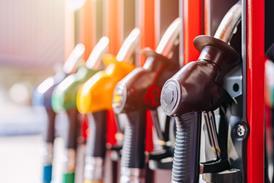


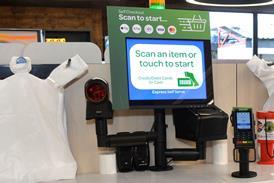




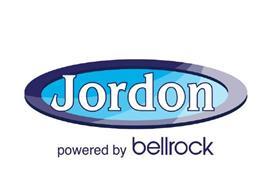




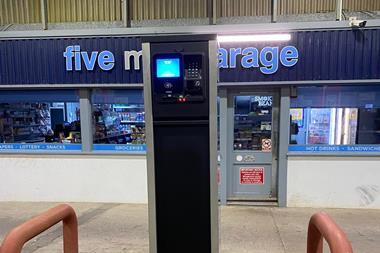


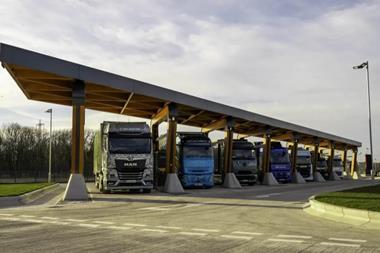

No comments yet